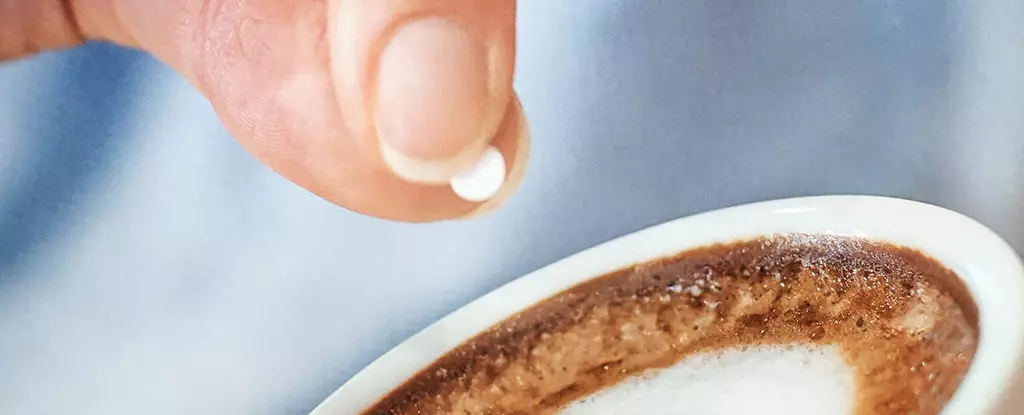Antibiotic resistance is emerging as one of the most pressing challenges facing modern medicine today. Bacteria, once susceptible to our arsenal of antibiotics, have evolved mechanisms that render these life-saving drugs ineffectual. As a result, more individuals are falling victim to serious infections that resist even the most potent treatments, leading to increased mortality rates. The urgency for innovative solutions has never been more pronounced. In light of this situation, researchers are exploring unconventional avenues, with surprising candidates such as artificial sweeteners coming into focus.
Saccharin: An Unexpected Contender
One such candidate is saccharin, a widely used artificial sweetener that has been under scrutiny for its health implications. However, recent research led by a team at Brunel University in the UK sheds light on an unforeseen potential: saccharin may possess antimicrobial properties that can combat drug-resistant bacteria. In controlled lab environments, scientists observed that saccharin disrupts bacterial structures, inhibiting their growth and multiplication. By damaging the very cell walls of harmful pathogens, saccharin not only destroys bacteria directly but also enhances the efficacy of standard antibiotics.
Microbiologist Ronan McCarthy highlights the unique capability of saccharin to puncture bacterial defenses. “We’ve identified a novel antimicrobial—saccharin,” he asserts. The implications of such a finding are profound, particularly when considering the ever-increasing urgency to find effective treatments.
Testing Saccharin’s Efficacy Against Resistant Strains
The Brunel University study didn’t shy away from challenging adversaries. Researchers tested saccharin against notorious bacterial strains like Staphylococcus aureus and Escherichia coli, known for their drug resistance. Initial results indicated variability in effectiveness across different bacteria, yet the outcomes were positive enough to warrant further exploration. The tantalizing prospect that an everyday compound could serve as a catalyst for fighting superbugs is revolutionary.
This breakthrough suggests that the traditional timelines and costs associated with developing new antibiotics could be circumvented. “Normally, it takes billions of dollars and decades to develop a new antibiotic,” McCarthy notes. Instead, we may have an accessible compound right at our fingertips. The potential applications of saccharin extend beyond just direct antibacterial action; the research team even managed to engineer a surgical dressing infused with the sweetener that outperformed conventional materials like silver in lab tests.
A Broader Perspective on Saccharin’s Role
While the initial findings are indeed exciting, they demand a nuanced understanding of saccharin’s overall impact on human health. The comprehensive effects of artificial sweeteners are complex, and potential negative health consequences should not be overlooked. Indeed, as saccharin shines in this new light as an antimicrobial agent, the broader implications for its consumption are yet to be fully understood. There lies a delicate balance between leveraging saccharin’s antimicrobial properties while assuring that its widespread usage doesn’t lead to unforeseen health consequences or additional complications regarding its safety profile.
The Road Ahead: From Laboratory to Clinical Settings
The initial experiments present a case for cautious optimism. However, transitioning from lab results to real-world clinical applications requires rigorous investigation. We must tread carefully to establish how saccharin interacts with other treatments and what dosage may maximize its benefits without causing harm. The collective excitement surrounding saccharin holds promise, yet the pathway to clinical effectiveness is riddled with steps that must be taken judiciously.
Overall, the findings present a glimmer of hope in the fight against one of the most formidable threats to global health. As more nations grapple with the implications of antibiotic resistance, innovative approaches like the use of saccharin may resonate in future treatment paradigms that may save lives. The medical community must rally around this new frontier, cultivating an environment conducive to exploration while remaining vigilant about the implications of artificial compounds in our health narratives.


Leave a Reply